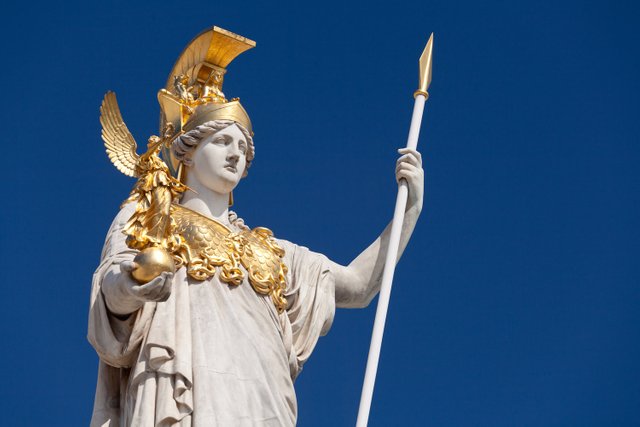Mythology, Marketing and Branding

We live in an unprecedented time. Breakthroughs in science and technology are happening at a breakneck pace. Our world has largely come to be defined by the empirical discoveries of the sciences, technology, biology, physics, mathematics. In many ways, these aspects on the spectrum of human knowledge are powering our way into the future.
So, what does mythology have to do with these things? It’s on the other side of the knowledge spectrum and belongs to a different time and era when human beings lacked – for the most part – a widespread, basic scientific understanding of the world and universe. What’s its use in the modern world? What value could it possibly have, especially for corporations and businesses, especially nowadays, when technology and science reign supreme? These stories are outdated and antiquated and are better off left resigned to the dustbin of history and dusty, unlit library shelves (visited only perhaps by undergrads looking for a place to have a quickie and the poor humanities professor unfortunate enough to stumble upon them), aren’t they?
From a business perspective, one challenging aspect can be taking these discoveries and breakthroughs, creating products with them, and then, perhaps just as challenging as making the discoveries and breakthroughs themselves, are presenting the products and services they make possible to consumers, buyers and middlemen in a way that “sticks,” that captures attention, and drives purchasing action. Sounds simple enough, but it’s a very engaging, challenging and for some of us, even fun endeavor.
The observations that follow are by no means original – many people have surely made the same observations I’m going to point out in this work. But for me, and maybe others as well, I have found these observations to be tremendously valuable for myself as I have gone about crafting my own company the past 3 years. And perhaps you may find some value in them as well to help drive your own success.
Here’s the basic observation: Many – though not all- of the most successful, world-recognized multinational corporations use mythology to define and brand themselves and their identity to consumers and to shape how we view them. This use of mythology has a very potent power that taps deep into the human mind and psyche, that creates and leaves a very deep impression in the furthest depths of our consciousness, creating an image and impression that can’t help but last over time as it marinates in the depths of the mind.
The green coffee logo we all know and love is a good place to start. As most of us already know, it is an image of a Siren, a mythical being from the Greek epic the Odyssey. Sirens were malevolent spirit creatures that lived in the sea, but they had the most stunning voices. Once heard at sea by sailors, they would completely abandon their journey and chart the ship towards the sound of the voices, deeply stimulated and obsessed to find the source of the seductive, indescribably beautiful voices. But the Sirens were coy and wicked creatures and would use their voices to drive the sailors to madness.
Indeed, their lair was said to be amongst sharp, craggy rocks hidden just below the water’s level, but impossible to see with the naked eye and so, once upon the voices, the ships would smash into the hidden rocks, bringing disaster, ruin and death upon the sailors.
It was said that this was the fate of many venturing across the sea, and that not a single one that heard the voices of the sirens ever lived to tell about it – except for Odysseus.

In one part of the story Odysseus is captain of a ship and, knowing that they will be crossing through the siren’s waters, and deeply curious to hear the voices but not to experience the common fate of those that did before him, instructs his men to tie him up securely to the ship’s mainmast so that he cannot move and force the ship off-course. Next, he instructs his men to plug their ears with beeswax, so that they will be able to continue steering the ship through the dangerous waters without hearing the voices. Tied to the mast and unable to move, with his ears not plugged as his men’s, Odysseus is said to have howled like a demon for his men to change the ships course as the sweet and pleasure-promising voices of the Sirens sang out to him in desperation for his company. And his crew saw him there, screaming his heart out, face red, veins popping out of his neck! But because of the beeswax in their ears, they were deaf to both his cries and the seductive songs of the sirens, and upon safely navigating to safer waters, untied their captain and continued their journey without peril. In this way, Odysseus succeeded in being the only man to hear the voices of the sirens without facing the terrible fate of all those that came before him.
What a story! Displays of bravery, cunning, courage, facing danger and coming out the other side – a symbol of one of the greatest journeys known to humankind.
And it is exactly these stories, these myths, that have been with humanity for thousands of years, since the dawn of civilization, that strike deep and to the quick within the minds of us all, with their images and symbolic representations, deep into the psyche, into the deepest layers of ourselves.
What a powerful tool to shape perceptions of a company! What a great way to make corporate branding “stick.”
Our favorite corporate fruit technology company is another prime example. Whether intentional or not on the part of its creator Rob Janoff, that particular fruit is associated with powerful religious connotations. Although it is not named in the Bible as the specific fruit of the tree of knowledge, most people connect it with that. The bite taken out of it works on multiple layers as well, subtly (intentionally?) alluding to eating the fruit of the tree of knowledge and the apotheotic transformation that this signals the beginning of, metaphorically speaking, of course.

Additionally, Janoff, the creator of the logo, has noted that byte is also a computer term, giving the logo a certain personality, as though it were winking at the consumer. It is a simple and powerful image that speaks the language of a deep mythology connected with knowledge, rebellion against authority, independence and discovery. It resonates strongly in the human mind and serves to create a powerful and potent perception that has played a tremendous role in the growth of the company with the world’s highest market cap.
Interestingly, the original logo was of Isaac Newton sitting under the apple tree when his discovery of the force of gravity was born, a physical and non-mythological tree of knowledge!
What a powerful combination of mythological, religious and scientific references, all wrapped up into one, simple symbol.
Further examples include the helmet of Prometheus, now the logo of Naver, Korea’s primary search engine and internet portal, a mythological symbol of speed, knowledge, alliance with higher powers and sacrifice.
The name of China’s largest company, Ali Baba, comes from the Arabian folk tale, Ali Baba and the 40 Thieves, one of the most famous stories from the One Thousand and One Arabian Nights collection.
Nike, Greek for victory, is a boon bestowed by the Goddess Athena. Its trademark swoosh symbolic of her wing.

Far from being a dead and irrelevant subject, we see here that the energies, imagery and layered meanings of mythology and its symbols serve to vitalize some of our world’s most successful and powerful corporations as they shape their images to resonate universally in our common human psyche, molding our perceptions of them as we interact with them, their products and services, on a daily basis in our own lives.
Whether you’re building your own company or working at one now and need a fresh idea for how to market something or rebrand yourself, looking to mythology for ideas and inspiration can prove to be one of the most potent resources at our disposal. It might even reveal something to you about yourself.
After all, one of the many beautiful things about mythology is that, like dreams, it speaks in a language of metaphors and layered meaning. It shows us the deepest parts of ourselves in a way that displays a universal common humanity, the journeys of our own lives, which may be one of the main reasons it resonates so strongly with consumers. And through that process, mythology also encourages us to arrive at our own awakenings and understandings, which just might be the most important work we do in our lives.
Photo Credits:
The first three images come from Unsplash.com, a wonderful, free website with stock images that can even be used for commercial purposes for free!
Creamy Swirling Cosmos: Joel Filipe
Siren: Jeremy Bishop
Apple Tree: Marina Khrapova
Athena: Pressdigital (Getty)
Go here https://steemit.com/@a-a-a to get your post resteemed to over 72,000 followers.
✅ @ideaseeder, I gave you an upvote on your first post! Please give me a follow and I will give you a follow in return!
Please also take a moment to read this post regarding bad behavior on Steemit.
You've got some great points in here. Science only serves to explain the how of something, but most consumers are not concerned with how something works; they just want it to work. In a marketplace inundated with products from different companies that all serve the same function, the consumer is going to choose the product that they feel they can connect with. Enter marketing and mythology!
Thanks for the kind words! Well said.